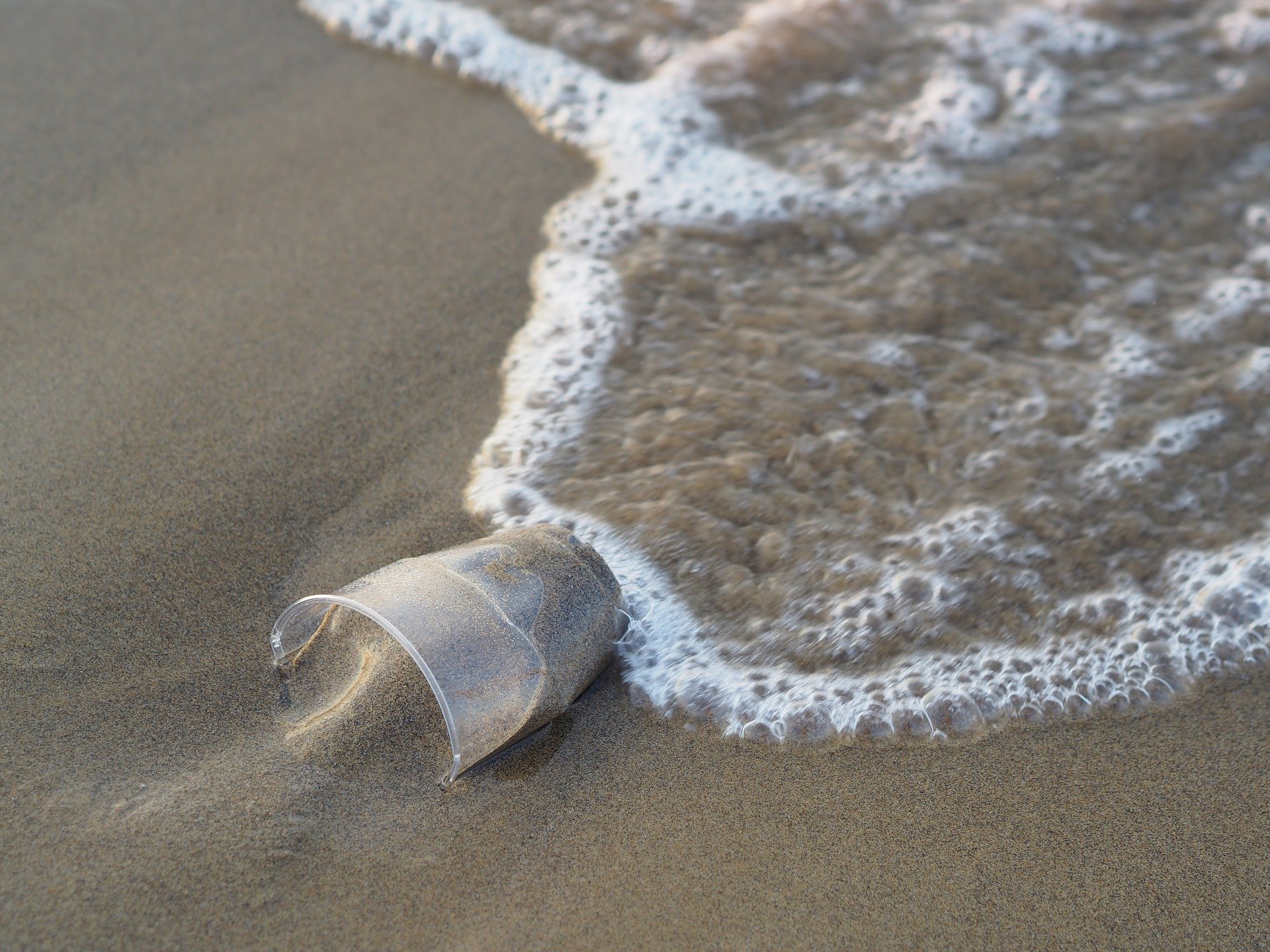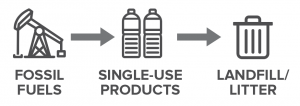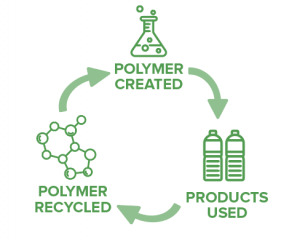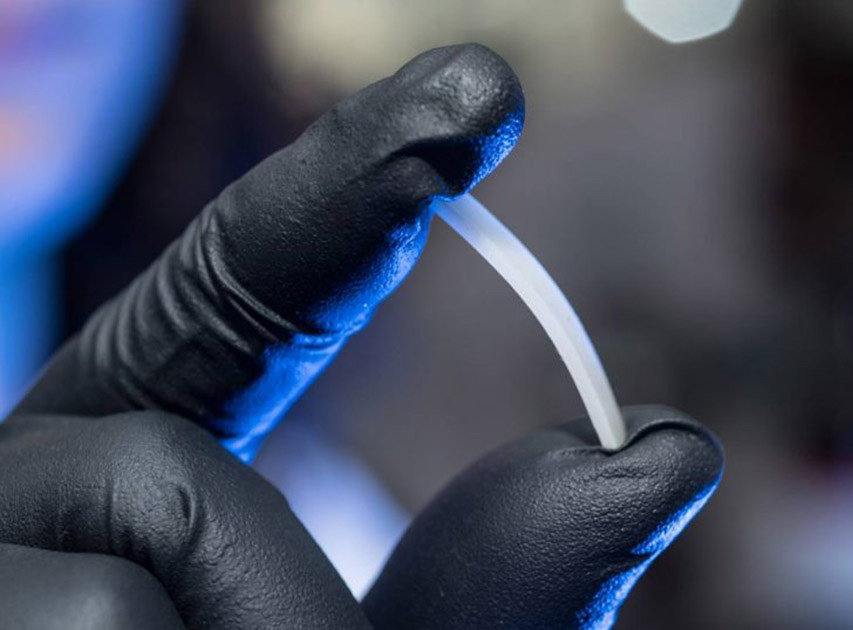View this page in VR: Go fullscreen ![]() and look for the VR button
and look for the VR button ![]()
Infinitely recyclable polymers show promise for reducing plastic pollution

Plastic pollution from single-use products is becoming a global catastrophe – with estimates that by 2050 there will be more plastic in the ocean than fish, by weight.
The popularity of plastics over the last century has led to exponential growth in the amount of plastic developed, often for single-use products. After use, these plastic products are disposed at monumental rates – every year around 31 million tons of plastic waste is deposited into landfills and nearly 8 million tons of plastic waste ends up in oceans. That plastic is then broken down into microplastic particles that are nearly impossible to clean up.
Present-day plastics are developed for cost, performance, durability, and disposability. This creates an unsustainable linear model for the plastics economy.

The solution to this growing issue is a new material – a polymer that is infinitely recyclable and biodegradable.
In Dr. Eugene Chen’s chemistry lab at CSU researchers are developing polymers with the promise of becoming waste-free alternatives to single-use plastics.
Recyclability is inherent to the polymers that Chen, a professor in the Department of Chemistry, is developing. The process involves breaking down the polymer after use into its original chemical starting point as a monomer. This creates a monomer – polymer – monomer recycling flow.


NEWS
Chemists create new route to PHAs: naturally degradable bioplastics
A tide of public momentum is swelling against the crisis of petroleum-based plastics, which are sitting in our landfills, floating in our oceans, and showing up in our air and even our food.
'Infinitely' recyclable polymer shows practical properties of plastics
Eugene Chen’s lab at Colorado State University has developed a completely recyclable polymer.
Polymer chemist Eugene Chen receives national honor from American Chemical Society
Eugene Chen, the John K. Stille Endowed Chair in Chemistry at Colorado State University, has received a national honor from the American Chemical Society for scientific contributions of major significance to his field.
Celebrate! Colorado State award winners for 2020
In recognition of his creative excellence and seminal contributions to advances in green and sustainable chemistry and polymer science, Eugene Chen, professor in the Department of Chemistry, has been named a Colorado State University Distinguished Professor.
“It would be our dream to see this chemically recyclable polymer materialize in the market place.”
-Eugene Chen, Professor in the Department of Chemistry
